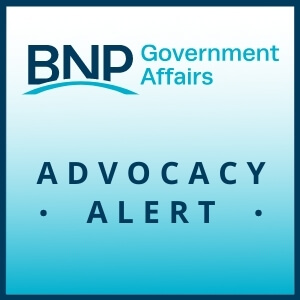Biden Releases Infrastructure Plan
Blog Categories
April 8, 2021
President Biden has committed to passing a federal infrastructure package. This week, the White House released details on what the President wants that package to include. An infrastructure investment has the potential to equip America with safer roads, bridges, and pipes, more efficient public transit systems, universal broadband, and many well-paying jobs. Although the final plan approved by Congress may look different, the President’s proposal is a starting point that kicks off negotiations and demonstrates his administration’s priorities.
President Biden’s American Jobs Plan proposal includes:
Transportation Improvements
- Repairing 20,000 miles of highways and roads and 10,000 small bridges across the U.S.
- New buses and rail cars
- Investments in airports and train stations
Utility Improvements
- Broadband for every American
- Replacement of all lead pipes
- Modernization of drinking, waste, and storm water infrastructure
- Tax credits to build high-voltage electric transmission lines
- Subsidies to help low-income customers access broadband
Environmental Action
- Implementation of a clean energy standard, with the goal of 100% carbon-pollution free power by 2035
- Creation of a Civilian Climate Corps
- Elimination of tax preferences for fossil fuel producers
Other Community Investments
- Capital improvement funds for public schools, community colleges, childcare facilities, veterans’ hospitals, and other federal buildings
- Investment in Brownfield and Superfund site development
- Funds to reconnect communities divided by transportation infrastructure
- Establishment of regional innovation hubs and small business incubators
Labor Considerations
- Enactment of the Protecting Right to Organize (PRO) Act, which would add protections against employer retaliation to organizing, override Janus opt-out provisions, and limit independent contractor designations for gig workers.
- Prevailing wage requirements
- Buy American and Ship American requirements
Revenue and Taxation
- Increased corporate tax rate of 28%
- Increased Global Minimum Tax Rate of 21%
- New 15% minimum tax on “book income”
The BNP will continue to work with federal partners to address our regional infrastructure priorities while using a sensible revenue approach to maximize the plan’s economic benefit. The BNP will keep you informed of any updates from Washington.
Related Posts
12.21.21 Advocacy Alert: What’s the Latest on Biden’s Vax/Test Mandate?
Yesterday, Governor Kathy Hochul announced she would repeal the state’s mask mandate, effective today. However, her announcement did not proactively address how the repeal coincided with the NY HERO Act, which would have required employees in most workplaces to continue masking.
12.17.21 Advocacy Alert: Canada to Again Require Testing for Entry
Today, Canadian officials announced they would be reinstating a requirement that all entrants present proof of a negative COVID-19 test.
The requirement will take effect Tuesday, according to the Buffalo News.
NY’s Tax Climate Again Ranks at National Bottom
Today, the Tax Foundation (an independent tax policy think tank) released its 2022 State Business Tax Climate Index. The report compares all fifty states on various tax policies, then ranks their overall business tax climate. New York ranked below every state except New Jersey.
NY’s rank in the State Business Tax Climate Index
The poor ranking comes as no surprise. New York has oscillated between 48-50 for over ten years. After enacting new tax increases this year, New York dropped from 48th to 49th.
12.13.21 COVID-19 Bulletin: Statewide Mask Mandate Now in Effect
Yesterday, Governor Kathy Hochul announced she would repeal the state’s mask mandate, effective today. However, her announcement did not proactively address how the repeal coincided with the NY HERO Act, which would have required employees in most workplaces to continue masking.


